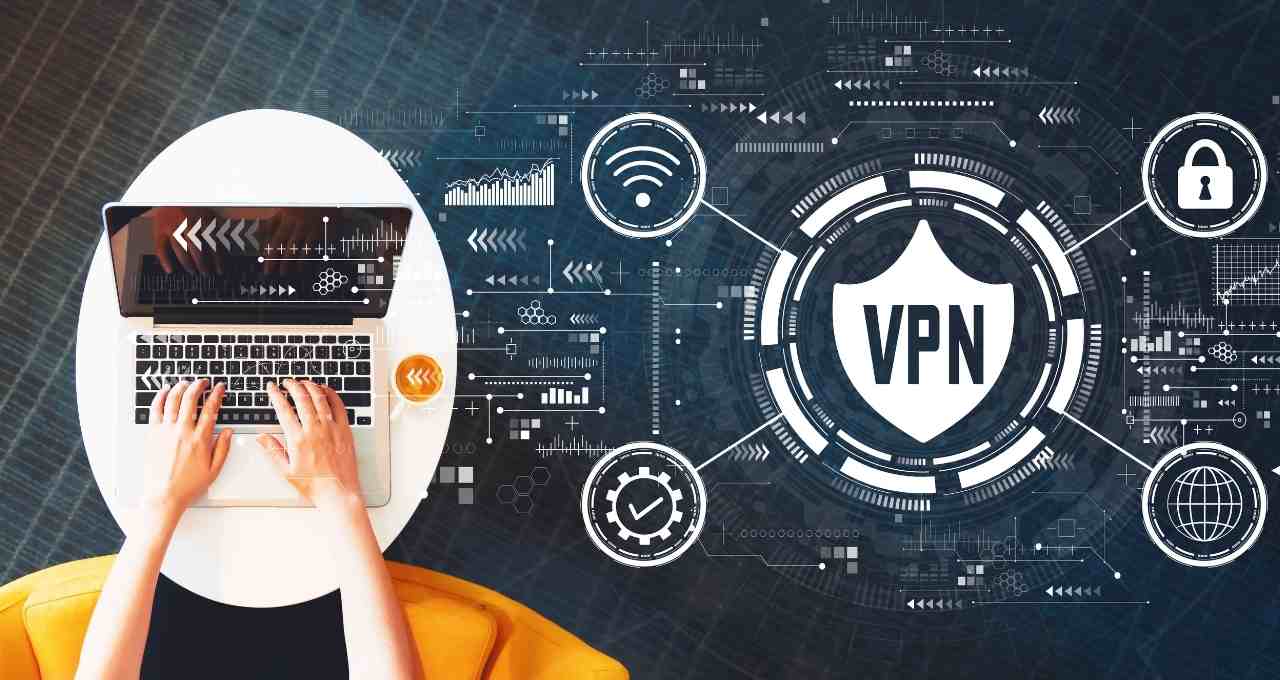A VPN, or virtual private network, is a secure way to connect to the internet. It encrypts your traffic and routes it through a VPN server, which masks your IP address and makes it difficult for anyone to track your online activity.
VPNs are often used to protect your privacy and security when using public Wi-Fi networks, such as those found in airports, cafes, and hotels. They can also be used to access geo-blocked content, such as streaming services and websites that are only available in certain countries.
How does a VPN work?
When you connect to a VPN, your device creates a secure tunnel to the VPN server. All of your traffic is then routed through this tunnel, and it is encrypted before it is sent to the internet. This means that no one can see what you are doing online, even if they are monitoring your traffic.
The VPN server then decrypts your traffic and sends it to its destination. This means that your IP address is masked, and it appears as if your traffic is coming from the VPN server, not from your device.
Types of VPNs
There are two main types of VPNs: remote access VPNs and site-to-site VPNs.
Remote access VPNs are used to connect individual devices to a VPN server. This is the most common type of VPN, and it is often used by individuals and businesses to protect their privacy and security when using the internet.
Site-to-site VPNs are used to connect two or more networks together. This is often used by businesses to connect their remote offices to their headquarters.
Benefits of using a VPN
There are many benefits to using a VPN, including:
- Privacy: A VPN can help to protect your privacy by encrypting your traffic and masking your IP address. This means that no one can see what you are doing online, even if they are monitoring your traffic.
- Security: A VPN can help to protect your security by preventing cybercriminals from intercepting your traffic and stealing your personal information.
- Geo-blocking bypass: A VPN can be used to bypass geo-blocking, which is a technique used by some websites and streaming services to restrict access to their content to certain countries. By connecting to a VPN server in a country where the content is available, you can access it even if you are in a country where it is blocked.
- Public Wi-Fi security: A VPN can help to protect your security when using public Wi-Fi networks. Public Wi-Fi networks are often unsecured, and they can be a target for cybercriminals. By using a VPN, you can encrypt your traffic and protect yourself from cyber attacks.
How to choose a VPN
When choosing a VPN, there are a few things to keep in mind:
- Security: Make sure to choose a VPN that uses strong encryption protocols, such as AES-256 or OpenVPN.
- Privacy: Choose a VPN that has a good privacy policy and that does not log your traffic.
- Speed: Choose a VPN that has servers in different countries and that offers high speeds.
- Reliability: Choose a VPN that has a good reputation and that offers reliable service.
Conclusion
VPNs are a great way to protect your privacy and security online. They can also be used to bypass geo-blocking and access content that is not available in your country. When choosing a VPN, be sure to choose one that uses strong encryption protocols, has a good privacy policy, and offers high speeds and reliable service.

